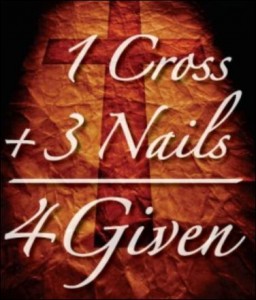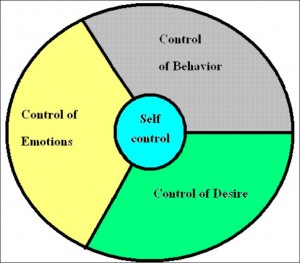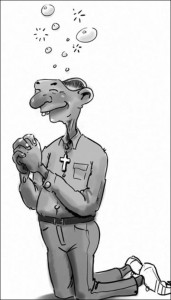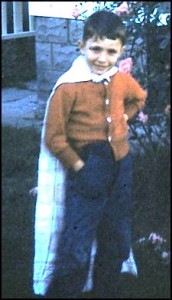It’s easier to forgive than it is to forget. I’m often asked by people who are deeply struggling with pain suffered at the hands of others. They confess that they have forgiven, but they just can’t forget. I know about this from experience and I know the difficulty it brings in our lives. God forgives us, and he even forgets our sins. He promised to bury them in the deepest part 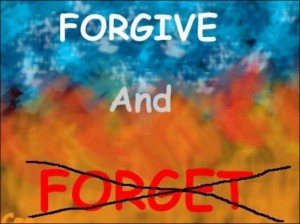 of the sea. He promises to remove them from us as far as the east is from the west. But for me, I forgive, but I very often just can’t forget! Many feel that if they can’t forget about it, then they haven’t forgiven. I would argue that you don’t have to forget to forgive. Forgiveness can be sincere even though you still remember.
of the sea. He promises to remove them from us as far as the east is from the west. But for me, I forgive, but I very often just can’t forget! Many feel that if they can’t forget about it, then they haven’t forgiven. I would argue that you don’t have to forget to forgive. Forgiveness can be sincere even though you still remember.
Forgiveness is a choice. Forgetting is often too intimately connected with our emotions. When we choose to forgive we face the sin and deal with it rather than avoiding or ignoring it or suppressing it. If you feel you must forget before you can forgive you will find forgiveness nearly impossible at times. We all remember sinful acts done against us and when those memories flash across our minds the feelings associated with them are always aroused again and again. But if we remember that forgiveness is a choice then you can say at each time of remembrance, “No matter how many times I remember the pain you have caused me, I have chosen to forgive you and will never retaliate or strike back. I leave justice in the hands of an all knowing God.” It is through this act of the will that we will eventually workout the pain and with God’s help, learn to forget.
The alternative to forgiveness is to live in constant slavery to your emotions. If that’s the case, we often live in a ceaseless process of hurt, bitterness, anger, resentment and self-destruction. I like the way one writer spoke about it. He said, “Forgiveness is a miracle of the will… and even has creative power to move us away from a past moment of pain, to unshackle us from our endless chain of reactions, and to create a new situation in which both the wrongdoer and the wronged can begin a new direction in life.”
Chuck
“For everyone, both great and small, shall really know me then, says the Lord, and I will forgive and forget their sins.” Jeremiah 31:34

